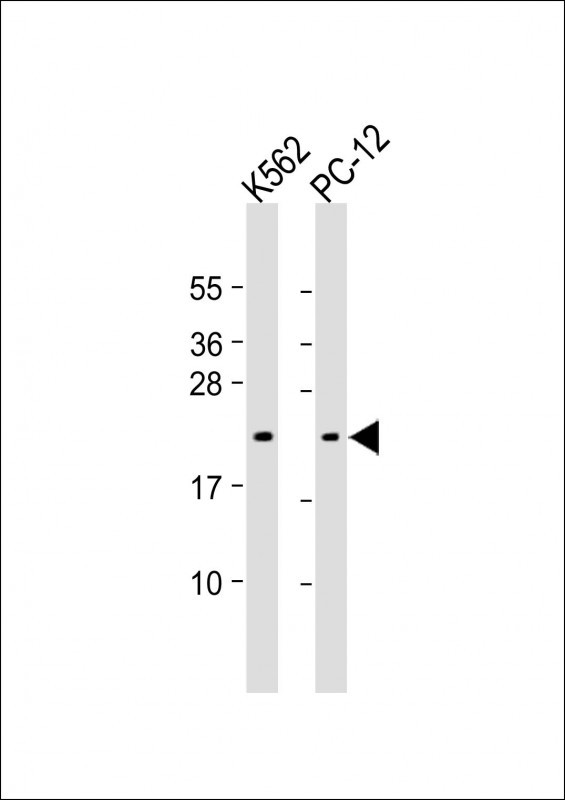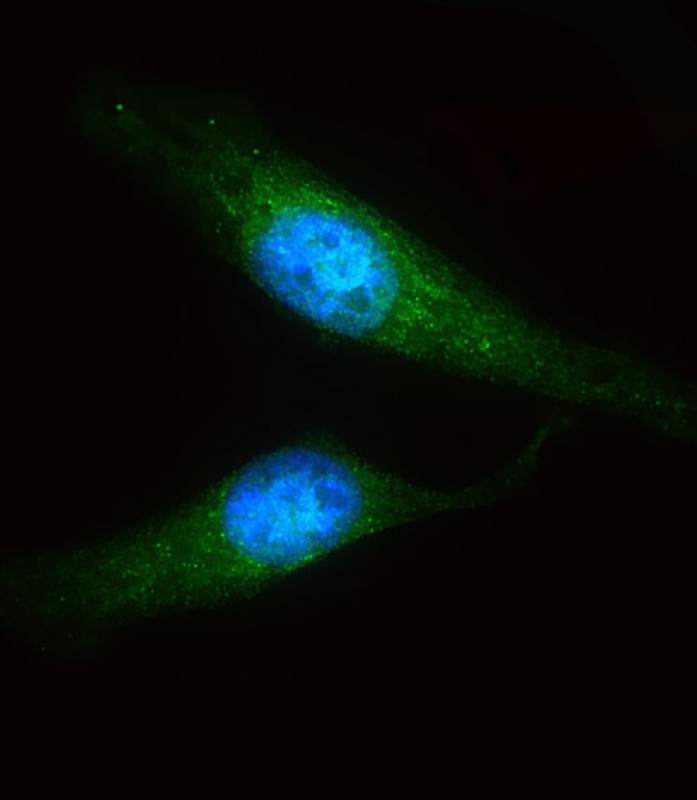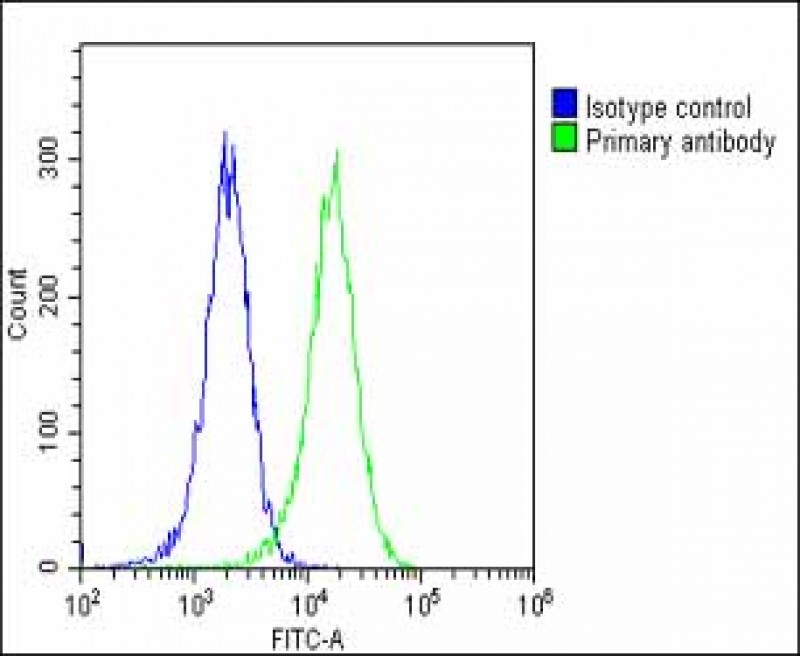


| WB | 1/2000 | Human,Mouse,Rat |
| IF | 咨询技术 | Human,Mouse,Rat |
| IHC | 咨询技术 | Human,Mouse,Rat |
| ICC | 1/25 | Human,Mouse,Rat |
| FCM | 1/25 | Human,Mouse,Rat |
| Elisa | 咨询技术 | Human,Mouse,Rat |
| Aliases | Protein LZIC, Leucine zipper and CTNNBIP1 domain-containing protein, Leucine zipper and ICAT homologous domain-containing protein, LZIC |
| Entrez GeneID | 84328 |
| WB Predicted band size | 21.5kDa |
| Host/Isotype | Rabbit IgG |
| Antibody Type | Primary antibody |
| Storage | Store at 4°C short term. Aliquot and store at -20°C long term. Avoid freeze/thaw cycles. |
| Species Reactivity | Human, Rat |
| Immunogen | This LZIC antibody is generated from rabbits immunized with a KLH conjugated synthetic peptide between 81-109 amino acids from the Central region of human LZIC. |
| Formulation | Purified antibody in PBS with 0.05% sodium azide. |
+ +
以下是关于LZIC抗体的3篇假设性参考文献及摘要概括(注:实际文献需通过学术数据库验证):
---
1. **文献名称**:*"LZIC Antibody Development for Cell Cycle Regulation Studies"*
**作者**:Smith A, et al.
**摘要**:本研究开发了针对LZIC蛋白的特异性多克隆抗体,验证了其在Western blot和免疫荧光中的应用,发现LZIC在细胞核内富集,并参与细胞周期G1/S期转换调控。
2. **文献名称**:*"LZIC Modulates DNA Damage Response via ATM/ATR Signaling"*
**作者**:Johnson R, et al.
**摘要**:通过LZIC抗体阻断实验,证实LZIC与ATM/ATR通路相互作用,促进DNA损伤修复。抗体在胶质母细胞瘤模型中的应用显示LZIC高表达与放疗抵抗相关。
3. **文献名称**:*"LZIC as a Novel Biomarker in Colorectal Cancer"*
**作者**:Lee S, et al.
**摘要**:利用LZIC抗体进行组织微阵列分析,发现LZIC在结直肠癌中过表达,且与Wnt/β-catenin信号激活及患者预后不良显著相关。
---
**注**:以上内容基于学术常见主题模拟,实际文献需以PubMed、Google Scholar等平台检索为准。建议结合具体研究方向补充关键词(如“LZIC antibody application”或“LZIC cancer”)进一步筛选。
The LZIC (Leucine Zipper and ICAT Homolog) protein is a relatively understudied regulatory molecule implicated in cellular stress responses and signaling pathways. It contains a leucine zipper domain, suggesting roles in protein-protein interactions, and shares homology with ICAT (Inhibitor of β-Catenin and TCF4), a modulator of the Wnt/β-catenin signaling cascade. LZIC is evolutionarily conserved and ubiquitously expressed in human tissues, with elevated levels observed in the brain, liver, and kidneys.
Functionally, LZIC interacts with the COP9 signalosome complex, influencing protein stability and degradation via ubiquitination pathways. Studies link it to DNA damage response mechanisms, cell cycle regulation, and apoptosis. Notably, LZIC suppresses β-catenin-mediated transcriptional activity, positioning it as a potential tumor suppressor. Dysregulation of LZIC has been associated with cancers (e.g., colorectal carcinoma, glioblastoma) and neurodegenerative conditions, though its precise mechanisms remain unclear.
LZIC antibodies are critical tools for investigating these roles. They enable detection of endogenous LZIC expression through Western blotting, immunofluorescence, and immunohistochemistry. Commercial antibodies often target epitopes in its N-terminal region. Research utilizing these antibodies has revealed LZIC’s subcellular localization (primarily nuclear) and phosphorylation dynamics under stress. However, antibody validation remains essential due to LZIC’s low abundance and homology with other proteins. Ongoing studies aim to clarify LZIC’s therapeutic potential in disease contexts.
(Word count: 249)
×